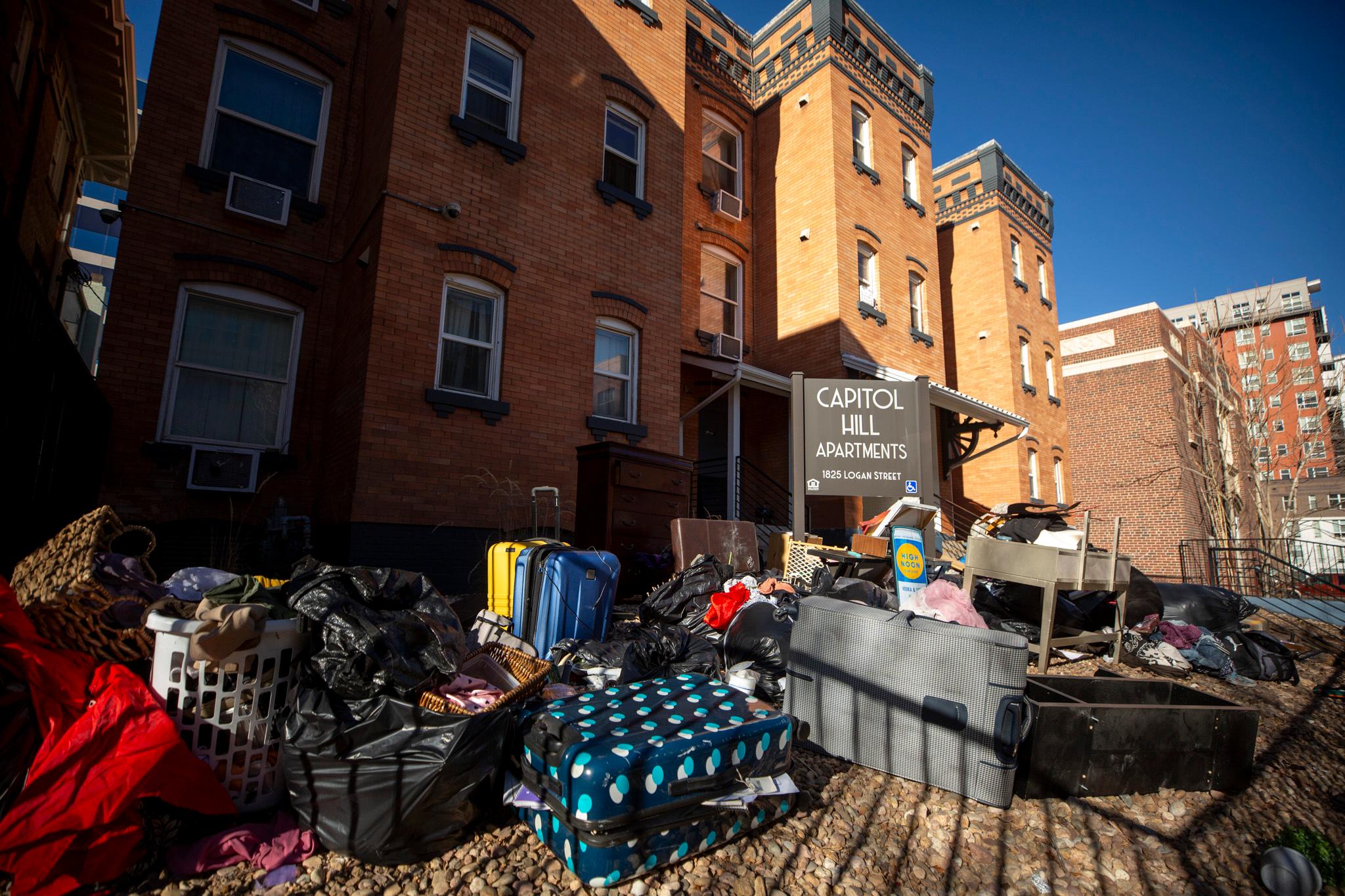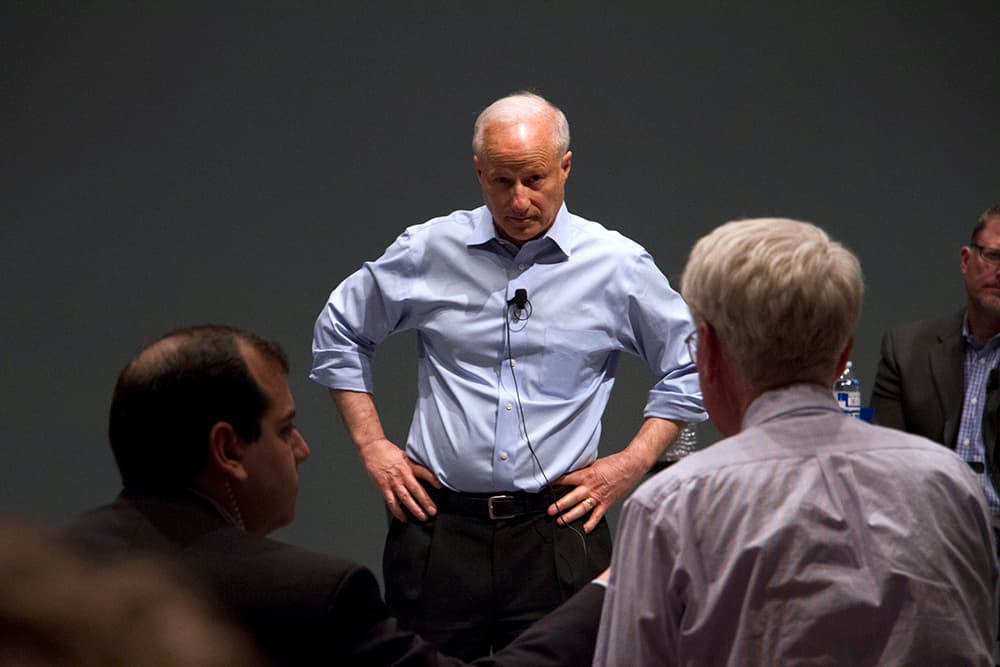
The last question of the night at U.S. Rep. Mike Coffman's first town hall since President Donald Trump's election was an emotional one from a woman whose grandparents were in Auschwitz. She said she needed to hear from her congressman that comments by White House spokesman Sean Spicer that seemed to minimize the Holocaust were unacceptable.
Coffman started to explain Spicer's remarks, that he made a "terrible mistake" and had apologized, and the not particularly friendly crowd grew restless. Coffman paused.
"He needs to go," Coffman said. "He's not serving the president well."
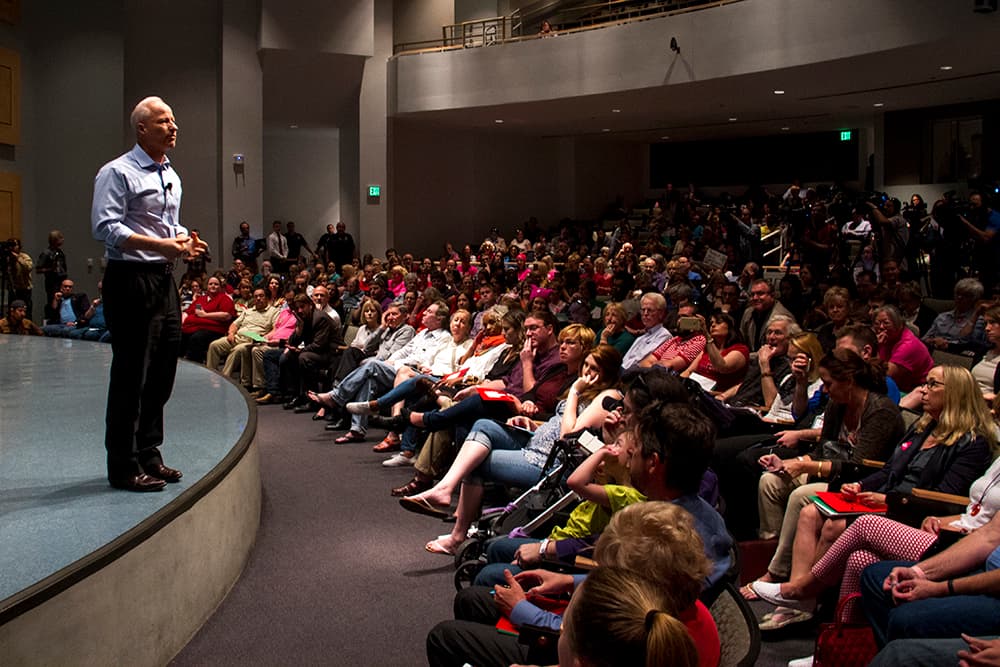
This exchange came nearly two hours after the 6 p.m. start of a town hall that was supposed to last an hour and that was held under tightly controlled conditions -- advance registration, ID checks, limited attendance, no signs larger than a piece of paper -- designed to either make sure those in the room represented a range of constituents rather than activists or prevent the type of scene that has dogged Republican congressmen around the country (depending on your point of view and level of cynicism).
Despite a lot of boos -- including boos from people who thought comments critical of Trump were not critical enough -- Coffman continued to take questions well after the scheduled ending time.
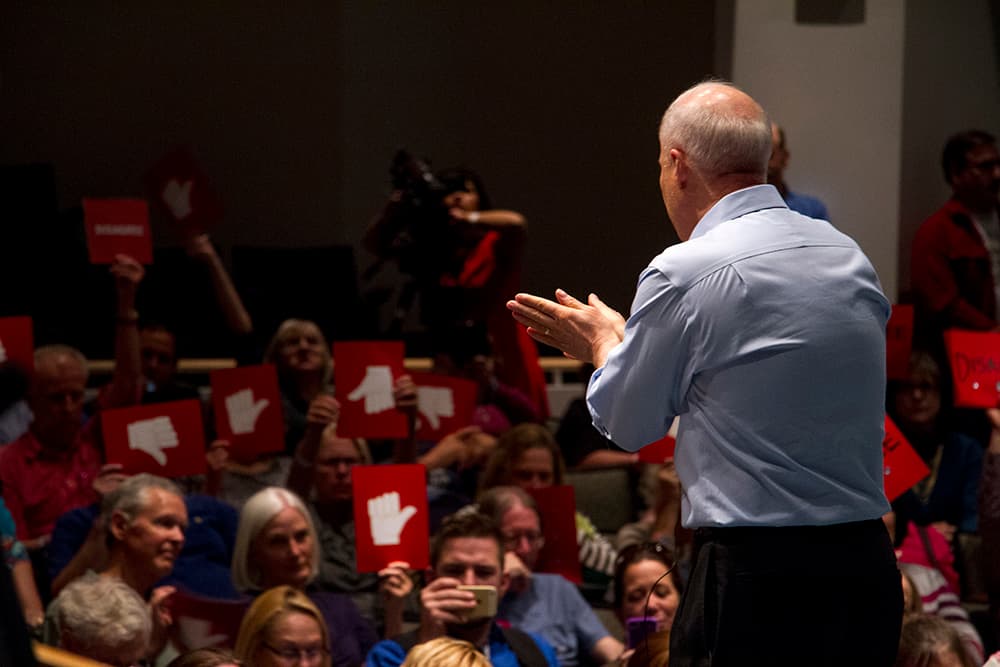
Asked what happened to his campaign promise to "stand up to Trump," Coffman reminded the questioner of the rest of the promise: "when I disagree with him."
And that's the catch: Coffman is a Republican, moderate by the party's standards but far too conservative for many Democrats. He vocally supported the Republican health care bill that failed to get a vote amid acrimonious finger-pointing and blame-laying, in particular its provisions to reduce Medicaid spending by phasing out the expansion and instituting caps on per-patient costs.
Pressed about the potential human impacts of these policy choices, Coffman sometimes deflected.
One man said his wife had numerous serious medical conditions and relied on Medicaid. Before she qualified, they spent $3,000 a month on medications. "Without Medicaid, she will die," he said.
"I'm not saying do away with Medicaid," Coffman responded.
"Can you promise you will not vote for a plan that will cut care to Medicaid patients?" the man asked.
Rather than answer yes or no, Coffman explained that the Republican plans under consideration called for either block grants or a per-patient cap. Many conservatives favor these provisions as a way to control costs and provide more flexibility to states, but most analysts believe that either fewer people or fewer services will be covered.
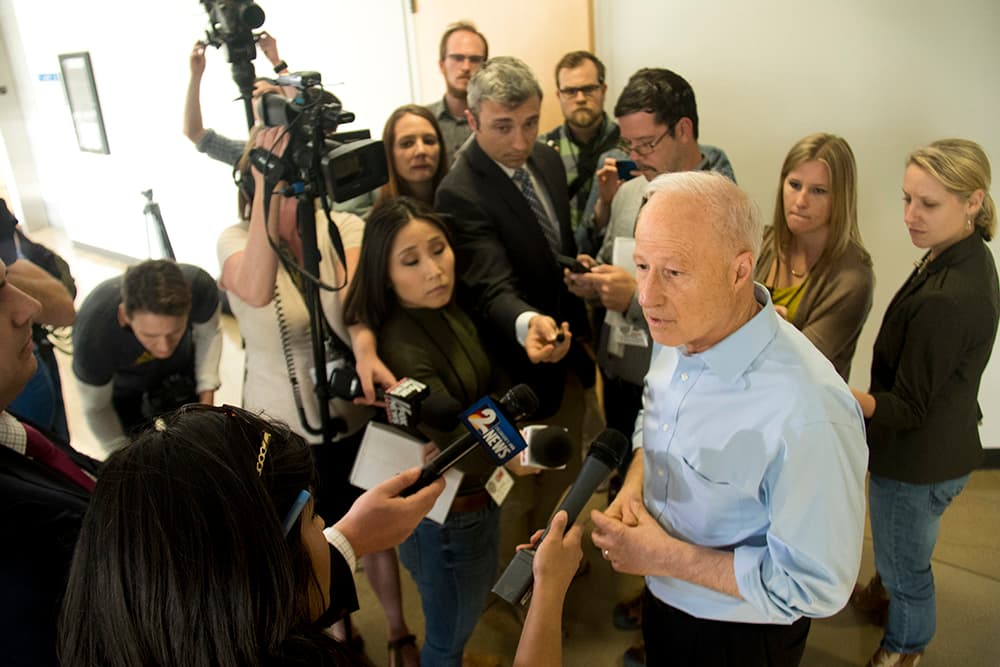
In response to a question about Russian ties to the administration, Coffman made the other newsworthy comment of the night. After criticizing both Republican Rep. Devin Nunes, chair of the House Intelligence Committee, and the Democratic vice chair Rep. Adam Schiff for running to the press, Coffman said he was getting more open to the idea of an independent third-party investigation.
"I'm not there for an independent counsel, but I'm heading in that direction," he said.
This got boos from the crowd, as did Coffman saying he did not think Congress could force Trump to release past tax returns, even though Coffman said he would support legislation to require such disclosure going forward.
The crowd even booed Coffman during a long answer to a question about immigration because he mentioned border security and the need to follow laws. Coffman has significantly moderated his stance on immigration since he was first elected -- his district was redrawn and now includes significant Latino, Ethiopian and Middle Eastern immigrant communities in Aurora.
"For people who have broken immigration laws but haven't broken other laws, let them come out of the shadows," he said.
Moderator Steffan Tubbs repeated over and over like a mantra: "Please follow the guidelines," when the crowd got upset.
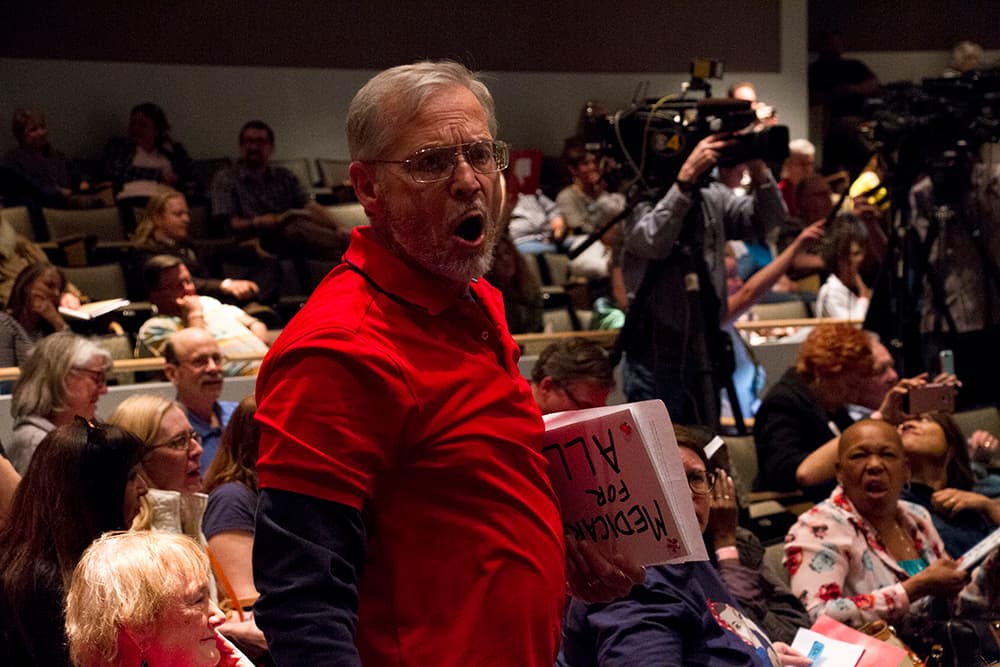
Coffman was at times combative, making a faux-scary "oooh" sound when a woman referred to the Freedom Caucus (he's not a member) and the Tuesday Group (he is a member) as "secret societies." On Trump's tax returns, he challenged the crowd, "How many of you have read his disclosure? What is in his return that is not in his disclosure?" (He also gave a skeptical "Oh?" when some insisted they had read Trump's disclosure.)
Asked why he didn't vote with his constituents, Coffman responded, "I've won a few elections so I think I'm doing a good job representing people."
And in response to a question about what he's doing to represent everyone in his district, not just those who voted for him, Coffman offered a bland and practical answer: He looks at the call logs before he votes.
Asked about his priorities for this session, Coffman talked about an issue near to his heart but not one that dominates partisan political discourse: mental heath care for veterans.
"The VA has taken a medication-centric approach to mental health, and it's killing our veterans," he said.
The crowd included Democrats who voted for Coffman and now question that choice and Republicans who want Coffman to defend Obamacare and "bolster" it.
Not everyone was an opponent. When Coffman said he thought the federal government should do less and when a questioner mentioned his high rating from the NRA, the applause and boos seemed evenly matched.
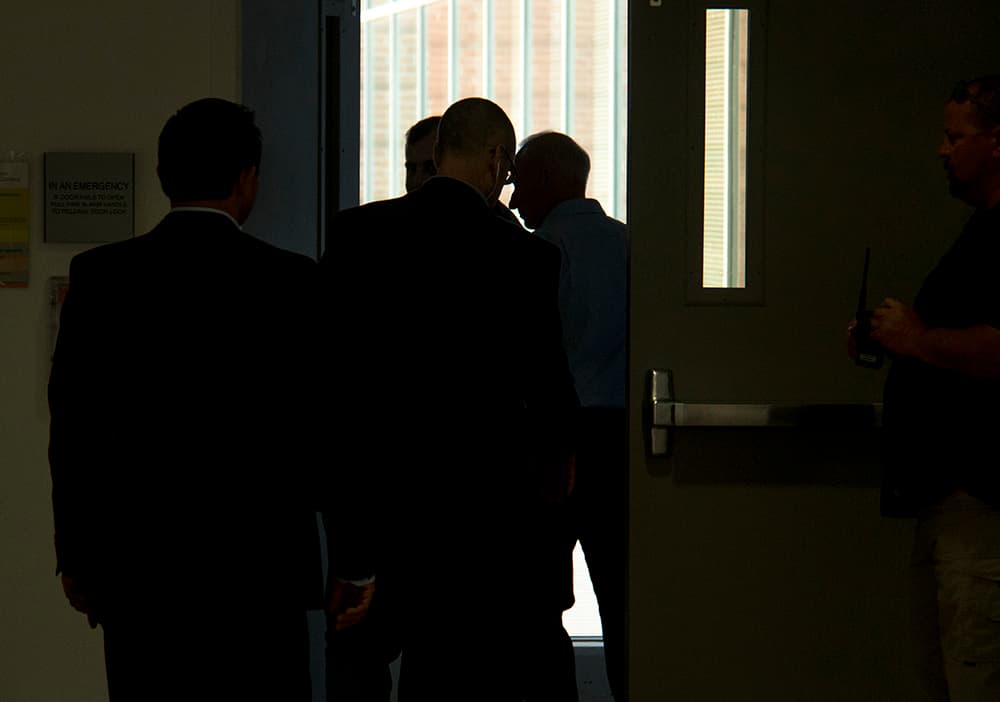
Coffman said he has criticized the president when he felt it appropriate to do so, but he wouldn't oppose him at every turn.
"Those of you on the extreme left will never be satisfied," he said.
Multimedia journalist Kevin Beaty contributed to this report.




